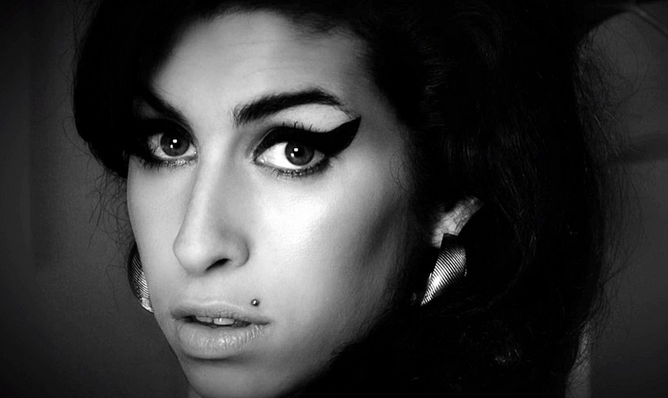To say that Amy Winehouse was a legend and an icon is no overstatement. But it is something largely built around what the public, the media and those close to her wanted her to be. In Asif Kapadia’s documentary, simply titled Amy, the goal he set forth in creating it was “to make a film that does right by her.” Many in the Winehouse camp, however, have been horribly offended by the result. Which probably means it’s all true.

One surprising person particularly upset by the narrative is filmmaker Reg Traviss, Amy’s boyfriend in her final years as she navigated the road to recovery. Claiming that Kapadia distorted key moments and relationships in the singer’s life for his own purposes, Traviss has stated, “He manipulated his material beyond what is acceptable for the medium of a documentary biopic.” Harsh words. But then, the truth can be harsh. Another offended party, Mitch Winehouse, has even expressed a desire to release his own film correcting the “omissions” of Kapadia’s take.

The moments that most upset him perhaps were the implied accusation that the veracity behind the line “my daddy thinks I’m fine” in “Rehab” was what led Amy to continue on her “troubled track,” taking her father’s approval about not going to rehab the first time around when her record label demanded it back in 2005 to mean she could go on as she was living. As for Blake Fielder-Civil–referred to solely as Blake Fielder in the documentary–there’s not much Kapadia needed to manipulate to make him look like a total nob head. The two first met at a Camden club called Trash, a venue Blake passed out fliers for to promote various gigs–which should give some indication of his general smarminess.

Amy’s immediate attraction to someone she saw as the male version of herself led to a whirlwind that would last from 2005 to 2009, barely allowing her to make it out alive (which, ultimately, she never would). Blake’s appearances in the film showcase a man blatantly concerned solely for himself, meaning a distinct interest in holding on to Amy for the drug money she provided him. Footage of him at their post-wedding day celebration also showcases him saying, “Who’s gonna pay for this? ‘Cause I haven’t got any money,” with reference to the drinks he’s consumed.

Indeed, the entire thesis of Amy is based on a lack of true caring or understanding from anyone she loved. Her teen confession to both parents about being bulimic would be something both swept under the rug, a mistake that would help contribute to her heart’s complications with alcohol and consistent vomiting later on in life. It was as though no one wanted to acknowledge Amy’s multitudinous cries for help in the hope that she could somehow fix things herself and continue being a cash cow. Her father, in particular, is portrayed to have a vested interest in her for the fame by association he gets. An example of this is illustrated when he goes to visit her during her reprieve on the island of St. Lucia and comes with a camera crew in tow rather than on his own. A voiceover of Amy saying, “Dad, if you want money, I’ll give you money,” adds to the melancholic tone of her existence at this point in time. Like all artists, her sensitivity was keener than the average person’s, yet she tried her best to remain rough around the edges so that no one could see through her. Drugs were paramount to sustaining this image of impenetrability.

In 2007, the height of her addiction problems, Amy was hospitalized after having a seizure from too much coke, alcohol, heroin and crack in her system. Her family and management then stepped in to warn her that she couldn’t go on in this manner, especially if she was to soberly perform at her upcoming Grammy appearance (which she had already been banned from attending in America thanks to a cannabis arrest) and subsequent tour dates. That was the concern. Her performance. Needless to say, Blake smuggled heroin into the hotel she was staying in before he was arrested in November. She would go on to perform perfectly at the Grammys in February 2008, remarking to her friend after winning, “This is so boring without drugs.”

It seemed as though the only way Amy thought she could find freedom from the fame and pressure of being Amy Winehouse was to check out of her body through drugs and alcohol. Her endless battle with wanting the materials needed to ignore what was happening, while still wanting to achieve those common aspirations of getting married and having children finally did her in on July 23, 2011. In her short time, she gave her entire body and soul to music, in essence, dying for it.






















[…] such resident, Mandy Slore, a 23-year-old who recently saw the Amy documentary and is now more keen than ever to try the drug that has been described as “chic” by […]
[…] Amy Winehouse and Blake Fielder-Civil: The poster children for “bad romance” (poor Lady Gaga had to go blonde to avoid the Amy confusion), Winehouse and Fielder-Civil, too, possessed a drug-fueled relationship that was punctuated by longing, lust and separation. And no, it’s not fashionable to love Blake. […]
[…] “I’ve thought about expanding for a long time, but I don’t really think Bushwick is the place to do it. These people’s lives are so cinematic already. The drinking, the drugs–it’s a town filled with Amy Winehouses.” […]